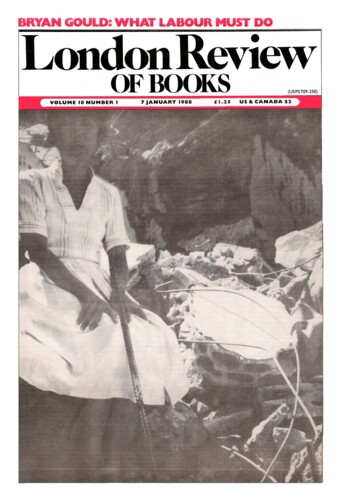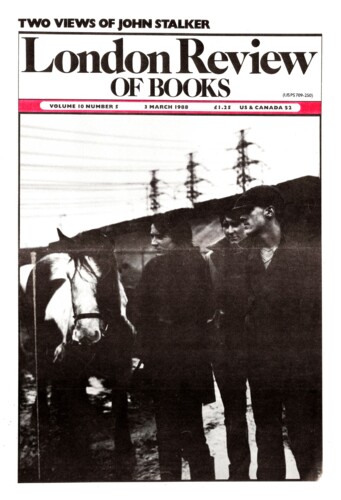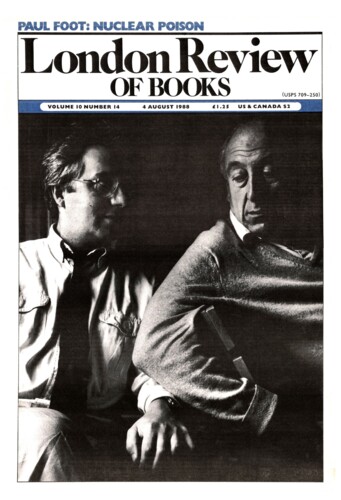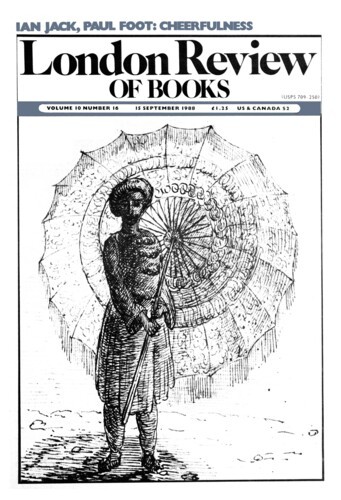Diary: Disaster Woman
Paul Foot, 7 January 1988
You can’t blame Thatcher for the October hurricane, but you can blame her for pretty well all the other disasters which have blighted 1987. ‘Disaster Woman’ might be an appropriate nickname for a prime minister who has for so long managed to avoid one. On the whole, she performs quite well at the scenes of the disasters. At Zeebrugge in March and at King’s Cross in November, she hurried to the scene of the tragedy and paraded her unsentimental regrets on television screens. She cannot keep this up for long. Alan Reynolds, whose only son died on the Herald of Free Enterprise, went to the service for the bereaved in Canterbury Cathedral. There was tea for everyone afterwards, but not much sympathy. Alan says he approached Mrs Thatcher and asked her about the miserable terms of compensation which were then being offered by the ferry company, Townsend Thoresen. Thatcher exploded, ‘I don’t think we really ought to be talking about money now, do you?’ and turned on her heel. Alan Reynolds, a building contractor, Tory by nature and tradition, was shocked. By contrast, incidentally, he found Neil Kinnock uncharacteristically willing to listen. Indeed, he said Kinnock brushed aside aides who wanted to take him off somewhere, and listened without interrupting for three-quarters of an hour: quite the best thing I have heard anyone say about Neil Kinnock, ever.




